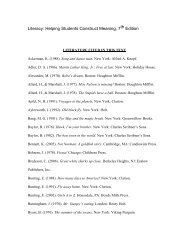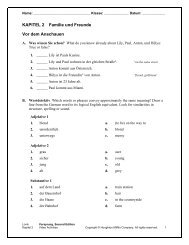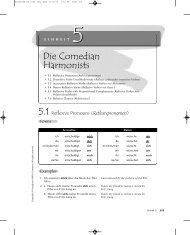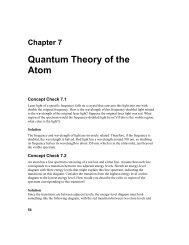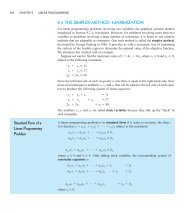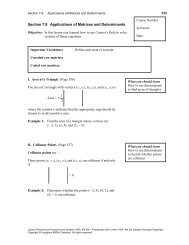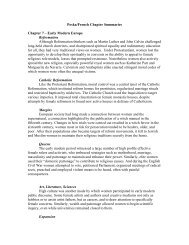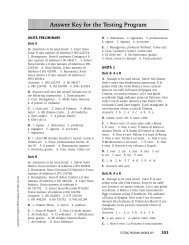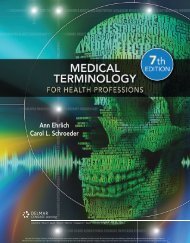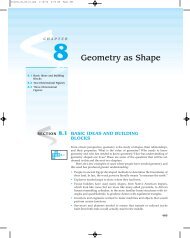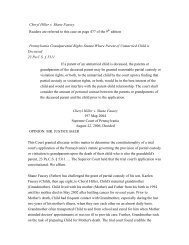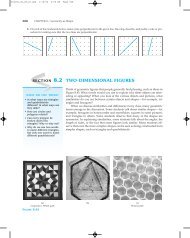(an)statt
(an)statt
(an)statt
You also want an ePaper? Increase the reach of your titles
YUMPU automatically turns print PDFs into web optimized ePapers that Google loves.
AnsersGE_07 (365-371).qxd 8/12/05 1:41 PM Page 367<br />
Forms<br />
1. Present Perfect Tense<br />
ich habe … tun können<br />
wir haben … tun können<br />
du hast … tun können ihr habt … tun können<br />
er/sie/es/m<strong>an</strong> hat … tun können sie/Sie haben … tun können<br />
2. Past Perfect Tense<br />
ich hatte … tun können wir hatten … tun können<br />
du hattest … tun können ihr hattet … tun können<br />
er/sie/es/m<strong>an</strong> hatte … tun können sie/Sie hatten … tun können<br />
3. Past Subjunctive II<br />
ich hätte … tun können wir hätten … tun können<br />
du hättest … tun können ihr hättet … tun können<br />
er/sie/es/m<strong>an</strong> hätte … tun können sie/Sie hätten … tun können<br />
Examples<br />
Copyright © Houghton Mifflin Comp<strong>an</strong>y. All rights reserved.<br />
1. M<strong>an</strong> hätte nicht zusehen dürfen! People should not have just watched!<br />
Warum hat m<strong>an</strong> die <strong>an</strong>deren machen lassen? Why did people let the others do things?<br />
2. Wenn m<strong>an</strong> etwas dagegen hätte tun wollen, If one had w<strong>an</strong>ted to do something<br />
hätte m<strong>an</strong> etwas tun können.<br />
about it, one could have done something.<br />
Stimmt es, dass m<strong>an</strong> es nicht hat kommen Is it true that peple did not see it coming?<br />
sehen?<br />
Expl<strong>an</strong>ation<br />
1. The present perfect, past perfect, <strong>an</strong>d past subjunctive II tenses are formed with a conjugated<br />
form of haben + DOUBLE INFINITIVE if they include two main verbs. A double infinitive<br />
c<strong>an</strong> occur with modal verbs or with fühlen, hören, lassen, sehen or spüren.<br />
2. If the double infinitive is located in a dependent clause, all three verbs are at the end of the<br />
dependent clause; the order in all three tenses is: 1. conjugated form of haben, 2. infinitive<br />
of the first main verb, 3. infinitive of the modal verb or of fühlen, hören, lassen, sehen or<br />
spüren.<br />
Einheit 7<br />
367




